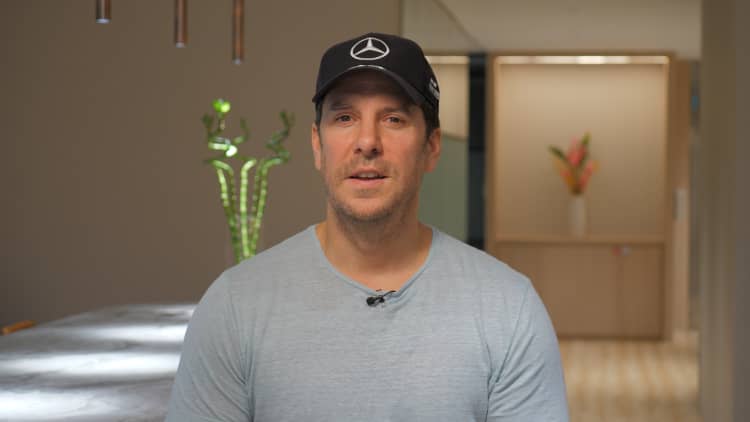Found a new job? Your soon-to-be former employers would likely conduct an exit interview on your last day — and they expect you to give honest reasons for your departure.
But most people would lie, according to one workplace expert.
“There is a strong norm against clear honest and critical feedback in most organizations,” said Tessa West, a professor of psychology at NYU.
“The default isn’t honest feedback. The default is bull—-.”
The main reason why most people find it hard to give frank feedback in exit interviews is because there is no “foundation” for them to have a difficult conversation.
Learning how to take power in giving feedback is a really critical skill so don’t just throw it away.
Tessa West
professor of psychology, NYU
“That takes months and months of practice and daily feedback conversations to build that muscle. But [employers] want people to have that muscle on the most important day,” West added.
While employees might think it’s not worth giving feedback when they’re already one foot out the door — West said there are benefits to being honest.
“Think about this as a way for you to learn how to have an uncomfortable feedback conversation, and you can practice on your ex-employer,” she added.
“Learning how to take power in giving feedback is a really critical skill so don’t just throw it away.”
The author of “Jerks at Work: Toxic Coworkers and What to Do About Them” shared five tips with CNBC Make It on how you can be more honest in exit interviews.
1. Know the power structure
Some may be afraid to speak their mind because of the perceived “power differential” in an exit interview — that the person conducting the interview can ruin your career or reputation.
“The first thing that you need to do is to have a really clear understanding of what that power means and how it could be potentially used against you,” said West.

“Because a HR person is probably not going to affect your reputation. But in your mind, there’s a million ways that information can get out and affect you.”
Instead, West advised workers to ask, for example, will the feedback be anonymous? “If your name is going to the feedback and you might only be comfortable saying XYZ.”
“Try to understand the nature of the power structure instead of assuming the worst from it,” she added.
2. Know where the data is going
Besides knowing the power structure, you should also know what will happen to the information you give, said West. The interviewer should be able to answer these “critical” questions:
- How are you going to consolidate the data that you collect?
- How are you going to look for themes?
- Where does this data go?
- How are you going to communicate that data to the organization or the leaders?
- How are you going to act on that data?
“A lot of companies collect feedback and then figure out later what to do with it and I think it wastes everyone’s time and energy,” said West.
Having these questions answered can also help in dispelling your fears of giving honest feedback.
“Because the data may not be used in a particular way that you think, now maybe you’re a little more comfortable being honest,” she added.
3. Ask for specifics
The right questions will elicit honest responses, said West — and the questions should be as specific as possible.
If the questions are general, people lie. Questions like, did you like it here? What did you not like about this place?
Tessa West
professor of pychology, NYU
“If the questions are general, people lie. Questions like, did you like it here? What did you not like about this place?”
“It’s not really your job to [make sure the interviewer is asking you the right questions], but if you want to be honest, push for specifics,” West added. Examples could be:
- Can you give me an example of what you mean by that?
- Is there a behavior you want me to address?
- Is there a specific instance or context that you want me to speak to?
This can help you avoid the “temptation of just laying on the positive stuff,” she said.
“If the interviewer isn’t willing to get specific, just say you don’t quite have enough detail to answer that question.”
4. Focus on behaviors
If you find it difficult to give negative feedback about the workplace or management, West said a good place to start is “focusing on behaviors,” not your interpretation of events.
For example, instead of saying someone “takes forever to get to things,” you can say: “I sent them an email once and they wrote back to me 48 hours later, and that was too long.”

It will even be better if you have documentation of events that are “very yoked” to what individuals did and when they did it, West shared.
“What they did and when they did it is way more powerful than what you think about the person. Leave the impressions at the door,” she added.
“Emotions are subjective, and they’re usually what we lead with — but they’re very easy to discount.”
5. You can say no
If you feel like you cannot be honest in an exit interview, don’t do it, said West.
“No data is better than misleading data. Refusing to do an exit interview can actually be super useful data for a company.”
It’s like abstaining from a vote … it’s another form of data that allows you to still express yourself and raise the alarm bells.
Tessa West
professor of psychology, NYU
That is especially so in cultures where “there is a norm against saying something negative” and not doing the interview can be “super diagnostic,” she added.
“People always ask me, ‘How do you know if I’m the jerk at work?’ Well, did you put in five names for this recruiter to check for references and none of them wrote back?”
West explained: “It’s like abstaining from a vote … it’s another form of data that allows you to still express yourself and raise the alarm bells.”
 EU News Digest Latest News & Updates
EU News Digest Latest News & Updates


